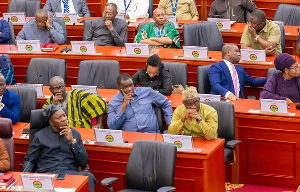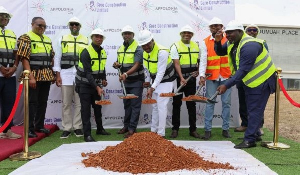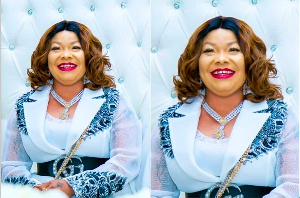Introduction
No matter which way one looks at culture, it has been the basis of any form of knowledge, technology and development. Not even the findings, laws and theories in the sciences can easily be divorced from the influence of cultural values. As a result it would be extremely difficult for any nation or group of people to effect any sustainable development if it fails to make careful considerations, study and in-depth analysis of its socio-cultural structures and institutions which are the foundation upon which to build its substructures. Africa abounds in natural and human resources and therefore has the potential to become a first class world. Unfortunately, this would remain an empty rhetoric and mirage so long as African countries continue to perpetrate the cultural suicide that was instigated long ago; and which has made us become anything but a poor photocopy of other civilizations.
Misrepresentation of culture
Being too aware that culture is a much discussed topic, I still venture to raise an over sung tune because of its importance. Very often the use of the word culture invokes a narrow meaning of rites, taboos, drumming and dancing. The most common and readily given definition of culture is, the way of living of a people which I find too simplistic. More recently, the United Nations Educational, Scientific and Cultural Organization (UNESCO, 2002) described culture as “...the set of distinctive spiritual, material, intellectual and emotional features of society or a social group, that encompasses, in addition to art and literature, lifestyles, ways of living together, value systems, traditions and beliefs.” With this definition in mind, I think we need to probe further to unearth what is the deeper and broader meaning of dekonu (Ewe), amanmre (Twi), or culture (English) to a people in practical everyday life terms. The mislabelled African Throughout the history of Africa’s contact with the outside world, the behaviour of the African has always been misconstrued and mislabelled as maladaptive, superstitious, primitive and even uncultured. Based on Eurocentric values and worldview; and losing sight of the fact that like a fossil, behaviour is a composite of culture, basic human nature and environmental context, the African has been derogatorily described by Western scholars as genetically inferior to white Europeans. Unfortunately, imbibing the misevaluation, we further denigrate ourselves by throwing away our own rich cultural heritage.
Effects of the confused identity
The influence of school education, urbanization, Christianity, Islam and European mass media continue to pose tremendous challenges to all people of African descent in experiencing their holistic cultural heritage. In most African countries, the educational system and the entire school curricula is modelled after Western models. Foreign languages such as English and French are made the obligatory medium of instruction. A growing concern in many African societies in modern times is the inability of their citizens to properly speak and write their native languages while their mastery of the second language is also suspect. Culture is no more considered a lived experience that begins from birth till death but rather a taught subject in the classroom tested through written or oral examination. The effect is that culture is now seen as it is being taught – sacrosanct rites, singing, drumming and dancing which are only the expressive forms of a given culture. Craig Brookins, an African American community psychologist points out that, behaviourally, the African child’s inability to identify with himself is evidenced in serious losses in the areas of education, unemployment, delinquency, substance abuse, adolescent pregnancy and suicide among others.
The rejected cornerstone of existence
Traditional wisdom and theories of reality that were synthesized in folklore such as proverbs, riddles, poetry, appellations, symbols, analogies and rituals are giving way to textbook knowledge based, to a large extent, on foreign values. Standards for judging what is normal, which is grounded in the African Deep Thought of the personality of man being anchored in the divine as well as the physical and social for instance, was discarded. We have failed to give attention to the beliefs, value systems and intellectual dimensions of our culture. Consequently, the traditional African educational process which is aimed at socializing its members to develop pleasant personalities couched within ethical existence and spirituality is losing place to the temporal, earthbound and essentially selfish and materialistic education found in most Western cultures. Is it any wonder that our civil service for example finds itself in the kind of shape it is in? In fact, it is not uncommon to hear the older folks speak disparagingly of the educated elite whom they accuse of being the worse criminals and perpetrators of corrupt practices. Somehow, being ‘cut off’ from our centre we come to consider other cultural values as our centre. In this way, the African’s self-concept and identity becomes distorted. The Ghanaian academia has a major role to play.
The gradual state of cultural suicide being perpetrated calls for concerted action to avert the continual degradation and subjugation of the African. Of course we can continue to accuse others for our current predicament. But how long can we continue to debate the issues? It is time the Ghanaian academia began to employ and promote the Afrocentric (African centred) approach in educating our children to halt this calamity and re-establish the African within the experiences of his/her cultural heritage. The Ghanaian academia would be of immense significance in our national development if it explores the philosophical dimensions of our culture, empirically establish its authenticity and disseminate in plain and simple but forceful language the import of what we stand for. We can then refashion rites of passage that resonate the philosophy of what Mbiti describes in the words “I am because you are and because you are therefore I am” which informs the communal living style of the African as against the individualistic mindset of the “self-made” European or American. The way to go
As a matter of fact, in our time, very few Ghanaians would want their wards to go through the Dipo, Gborto, or Bragro rituals yet most parents would ensure that their wards go through the end of education or apprenticeship graduation ceremonies. Why? These ceremonies (actually rites of passage) mark important milestones in the lives of the initiates that usher them into new roles. In reality, our forebears instituted social ceremonies such as puberty rites that gave meaning to their existence. Informal as it were, considerations about what the social realities (ontological) and how to be able to understand and gain knowledge of the reality (epistemological) informed the form those rites were to take. The thoughts of Dr. Kofi Abrefa Busia makes this point clearer when he contended that “the African has not offered learned and divergent disputations to the world in writing, but in his expression in conduct of awe, and reference of nature, no less than in his use of natural resources, he demonstrates his own epistemology.” It is possible to refashion the traditional rites of passage, alongside the contemporary ones to meet the challenges of modern times. It is about time we begin to take note of the many challenges associated with the “modern” forms of passage rites (which were all handed down to us mainly from European culture). Several questions need probing: Are these modern forms of declaring the young members of our society as young adults serving our best interests as they stand at the moment? How productive and responsible are the graduates from our various levels of educational institutions that have replaced the traditional informal school? Are we successfully enabling our children to take over from us?
Considering that culture is dynamic, it also follows that the emerging rites cannot be sacrosanct. Culture must ensure social integration and adaptation to the challenges of the environment. We can change the trajectory of our haphazard development by invoking the ancient African respect for the earth rooted in the belief of the divinity and motherhood of the earth by socializing our citizenry to protect and preserve our forests and water bodies for example. We would be spared the annual rites of asking the National Disaster Management Organization (NADMO) to come to the rescue of flood victims. Of course, this is not a call to go back for antiquated traditions that are irrelevant to our development today. It is a call to go back and drill into the African Deep Thought about life; the philosophy that seeks to be one with all and all with one. Let us go back for the quest for justice, truth and harmony. We must stand up for “kasapa”, that productive word which is basic to building each other up.
Conclusions
Development cannot precede vision and planning. There must be holism in development in the sense that development is not only creating industries, jobs, and providing material things. Purposeful and deliberate culture fashioned to direct vision is at the heart of every sustainable development. Throwing our own culture away and badly copying from others spells our continued subjugation. Re-echoing Dr. Kwame Nkrumah, I dare repeat that to be able to demonstrate to the rest of the world that “the new African is ready to fight his own battles, and is capable of managing his own affairs”; we must lay our own foundation. The calls of the visionary sons and daughters of Africa are still resonant. We can become the new Africans in this generation. You are that new African.
By: Jonathan Kuma Gavi (Social Psychologist)
E-mail: kumagavi@yahoo.com
Opinions of Wednesday, 2 March 2011
Columnist: Gavi, Jonathan Kuma














